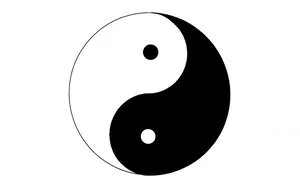The Limitations of Professional Psychology
I was trained as a clinical psychologist in the 1990’s but did not enter clinical practice upon graduation. That’s because, in New York State where I was trained, we were in an era of “managed care,” which was the neoliberal flavor of the day to cut health care benefits and cut costs for the benefit of insurance companies. Mental health care, already meagerly covered by insurance companies and considered to be a luxury, was squarely on the block.
During my training I had learned from some fantastic clinicians in the community during my 4000 hours of supervised practice, and many of them were worried about how they could continue their practices. They were being required to submit extensive forms and justifications to people at insurance companies with two year degrees who would then make treatment decisions, determining whether to approve three more sessions for suffering, struggling clients. These clients were also required to fill out forms at the beginning of therapy committing themselves to goals and behaviors that their therapists were supposed to track and monitor like probation officers, and then that data was needed to justify more sessions from the clerks at the insurance companies. This was no way to do therapy. Its goal was to deny care (as it always is), and these onerous and counterproductive requirements were augmenting, not deminishing, clients’ suffering.
That was the environment I faced as I approached graduation. I already had an undergraduate degree in business management with a concentration in organizational behavior, so I pivoted to find a way to make a living as a psychologist outside of the clinical, insurance reimbursed market. That led me into what became positive psychology and I’ve been that kind of psychologist ever since.
Professional psychology has done and continues to do a lot of good, but it has blind spots and can even inadvertently do harm. Let me highlight three limitations of professional psychology:
Capture by Capitalism
Erich Fromm, psychologist and author of the great books Escape from Freedom and The Art of Loving, gave this interview in 1960, with a snippet of transcript below:
Selected Transcript:
I'm afraid the role of the mental health movement and the role of psychology and psychiatry are to help to adjust man somewhat more to make him function more smoothly. You might say psychology and mental health today is in danger, and psychologists are in danger, to become the priests of industrial system. That is to say, to help people adjust to a system where they are supposed to produce and consume in masses, in groups directed by central organization and slogans, and yet at the same time, not to be aware they are dissatisfied with that. They suffer from it. They suffer from what the french already called in the 18th century “la maladie du siècle,” the illness of the century, from boredom, from the meaninglessness of life.
Now there is a danger in that, that they might get sick, that they might have… manifest symptoms, that they might protest, that they might want to make life more meaningful. And then many psychologists come and say, “You shouldn't be dissatisfied. If you are dissatisfied, that means you're neurotic, and I will adjust you so that you accept a meaningless life without rebelling against it, without symptoms, and you will have a nice funeral, anyway.
Fromm’s fears have come true in the decades since. Briefly, psychology grew into a profession in the US with the funding and support of the U. S. government, initially with the aim to provide support to veterans of World War II suffering from what was generically called at the time “battle fatigue” or “BF.” Refugee psychologists fmo Europe, mostly Jewish, translated their skills and interests in studying human behavior, the mind, thoughts, emotions, and human development, and made a case to be considered as a growing profession on par with medicine. As a profession, psychologists adopted the research methods of social science and developed a catalogue of defined “diseases” they could diagnose and treat the way medical doctors diagnose and treat diseases of the body. With that cultural and professional transformation in place, clinical psychology and psychiatry established themselves as professions and were funded by government and universities.
Subsequent activity within psychology therefore primarily focused on the alleviation of suffering as manifested by “symptoms” of defined “mental illnesses.” These clusters of symptoms were researched, published, and taught in the Diagnostic and Statistical Manual, thereby defining the direction, focus (and livelihood) of professional psychology. At its worst, the narrowing of psychology within the medical model converted psychologists into junior partners in treatment, beholden to referrals and approval for work by medical doctors - psychiatrists - who prescribe medication. Drugs are almost always considered to be the first and “most efficient” avenue of treatment for suffering labeled as anxiety or depression. Psychiatrists at their worst operate as sales representatives for pharmaceutical companies, who lavish them with benefits and perks and who fly them to conferences at desirable locations, incentivized only to devote a little time with each patient, sufficient only to write and adjust prescriptions.
To be sure, questions related to human fulfillment, happiness, positive health, and thriving still capture the attention of psychologists and therapists, but the money for therapists to feed themselves and their families comes mostly from operating within the four corners of the medical model with the goal to get people back to work and generally feeling well enough to function in day to day life. Reimbursement defines the scope and focus of therapy. Wealthier people can pay to get more from psychology, but if the poor or middle classes can even access therapy, they will most likely be offered some drugs and a handful of sessions that barely scratch the surface of their challenges in living, and nothing more.
Pathology Versus Health and Wholeness
As I said, I was trained as a clinical psychologist, prepared as a professional to make my living within the confines of the medical model, with the goal to reduce human suffering. But since the profession looked like it was shrinking as I neared graduation, my path led me into what had not yet been named as “positive psychology.” Positive psychology has been defined in different ways. I don’t have one set definition myself, but to take a crack at it, I’d say:
Traditional yin-yang symbol, used to illustrate how clinical and positive psychology interact with and relate to each other.
Positive psychology is the study of human fulfillment and optimal growth, both for individuals and for groups. It is concerned with helping groups, and individuals define and achieve their own versions of “the good life.”
I have at times tried to explain positive versus clinical or traditional psychology using the ancient yin-yang symbol, where one side represents the work of psychology to minimize and alleviate human suffering, and other side focuses primarily on maximizing human joy, fulfillment, development, and thriving. If clinical psychology focuses on alleviating symptoms and minimizing suffering, then positive psychology comes in to try to answer the question, “ok, after that, what?” Living is about more than just the absence of suffering. This ties directly to what Fromm was descrbing in the quotation above: what gives life meaning?
There is not a lot of funding or research to maximize psychology’s potential to impact people’s lives from the positive perspective. I may have more to say about some research that moves in this direction in a later post, but for the moment, let me at least point out how contemporary psychology is limited by the medical model because it devotes minimal intention or focus on how to expand and translate the insights and practices of positive psychology to promote growth and happiness throughout society. No insurance company is going to pay to help you become happier or more fulfilled if your therapist can’t make the case that you qualify under the definition of some checklist of symptoms that comprise a disease or mental illness listed in the DSM. If you want that kind of personal growth, you have to pay for it out of pocket.
Individualism Versus the Common Good
For me, the good life involves having time to see places in the world with my partner. This shot is from Bangkok in 2024.
The medical, disease based model of psychology focuses on individuals, not society or culture. It focuses on understanding and helping people sustainably change their own behavior if it is in their interests to do so to mitigate, minimize, substantially eliminate at least some portion of their suffering.
But what if people are suffering from collective injustice, or deprivation, or exploitation, or bigotry, and that suffering manifests itself in malaise, addictions, sadness, lack of sleep, anxiety, or other “symptoms” that could legitimately trigger a diagnosis in the DSM? This is the scenario Fromm describes above.
Medicalized psychology effectively diverts an individual from recognizing and taking collective action to solve collective, social, or economic problems, placing the responsibility on the individual to change themselves. That effectively helps those who inflict collective harm to evade their responsibility or change their actions. Even worse, the client seeking help can end up feeling blamed or even gaslit because they know or can sense that the world around them is wrong while their therapist may not acknowledge or even see it.
Here’s an example: psychology once saw homosexuality as a perversion and a disease. That was finally changed because enough researchers and LGBTQ+ people effectively, finally said, “To hell with that!” There are many more injustices today that harm people and create massive psychological distress to broad populations all over the world, and yet their greatest champions and perpetrators are culturally celebrated as heroes and leaders, rewarded with power, wealth, and status, and subsequently emulated by many of their victims who want to free their own necks from the boot heels of society’s winners.
Conclusion
This is just an overview, a summary, of my thoughts from over three decades of study and practice in positive psychology to describe some limitations of contemporary professional psychology. It is not meant to be all inclusive. This is not an article about things to change or do differently, focused on solutions. I’m just trying to describe what I see, doing what a psychologist might call diagnosis. What do you think? What have I missed? I’m eager for any comments, disagreements, or other perspectives.

